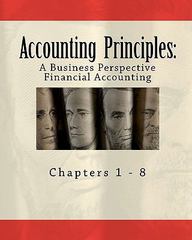Question
Otteson writes: Capitalism assumes that each of us is a free moral agent, capable of leading his own life, of holding his head up, not
Otteson writes:
"Capitalism assumes that each of us is a free moral agent, capable of leading his own life, of holding his head up, not begging leave or permission before he acts, not subject to correction from his superiors: a citizen, not a subject. Capitalism does not suppose that we are infallible; on the contrary, it is because no one is infallible that capitalism denies any of us absolute authority over others' lives. It assumes only that as free moral agents, each of us has authority over himself and that each of us is sovereign over his own life."
Please watch this mini-documentary about workers in Japan:
https://www.youtube.com/watch?v=95xg7yHINUY(Links to an external site.) Minimize Video
Do you think Mr. Sakai (in the film) proves or disproves Otteson's argument here? Is Mr. Sakai proving he is the master of his own life under capitalism (think carefully about this question -- his situation can be viewed from many viewpoints!)? Or is he proving the opposite? Please explain, showing you watched the clip carefully
Step by Step Solution
There are 3 Steps involved in it
Step: 1

Get Instant Access to Expert-Tailored Solutions
See step-by-step solutions with expert insights and AI powered tools for academic success
Step: 2

Step: 3

Ace Your Homework with AI
Get the answers you need in no time with our AI-driven, step-by-step assistance
Get Started


